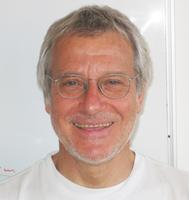Using Bayesian Estimation to Provide Personalized Insulin Dosing for Type 1 Diabetes: Algorithm Development and Clinical Testing
Ahmad Haidar – McGill University, Canada

We applied a system identification method to automatically adjust insulin doses for people with type 1 diabetes who are treated with multiple daily insulin injections. We posed a dynamical model to represent the relationship between insulin therapy parameters and carbohydrate intake (inputs) and blood glucose levels (outputs). A generalized likelihood ratio approach was used to pre-process the glucose data to identify hypoglycemia treatments and delayed meal insulin boluses. We then used Bayesian estimation and MCMC to estimate insulin therapy parameters from daily data, and used these estimated parameters, their variances, and the goodness-of-fit to provide weekly recommendation of insulin doses. This algorithm, and an accompanying mobile app, were compared to conventional therapy in a randomized controlled trial in 84 patients over three months, assessing their efficacy and safety. The algorithm's recommendations were also compared to recommendations of 13 endocrinologists who retrospectively interpreted data of 10 patients over four weeks, assessing its non-inferiority to the group of endocrinologists.
Bio: Ahmad Haidar is an Associate Professor in the Department of Biomedical Engineering and the Department of Medicine at McGill University. His research focuses on the development and clinical testing of dosing algorithms for insulin pens and pumps in type 1 diabetes. In his efforts to translate his research findings to clinical care, he has worked with Eli Lilly, BigFoot (now Abbott), AgaMatrix, and Adocia.






Location
CIM
McConnell Building
McGill University
Montréal QC H3A 0E9
Canada